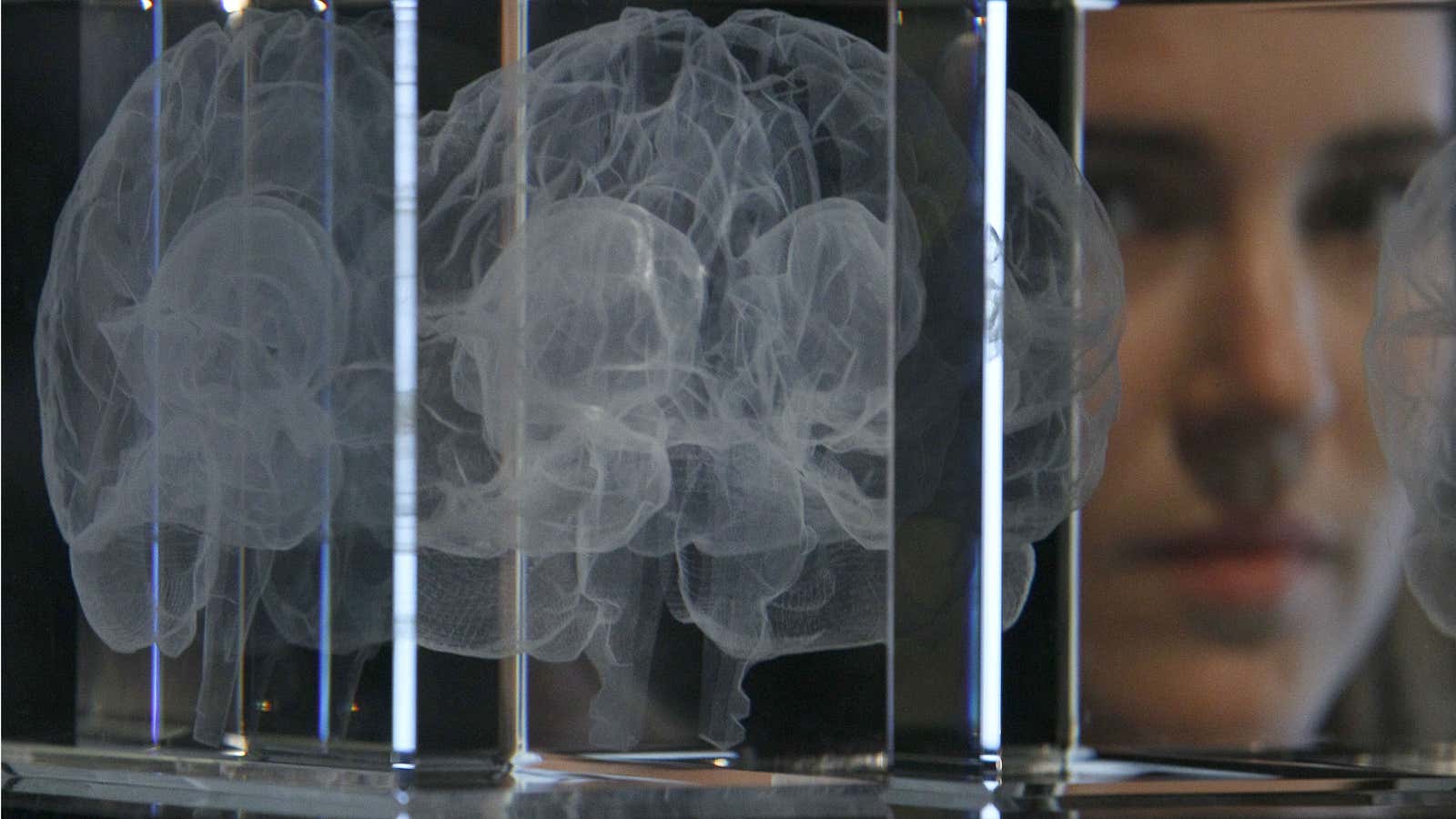MIT is breaking up with Nectome, the small biotech company seeking to one day freeze and preserve brains beyond death as a way of holding onto memories permanently.
In mid-March, the MIT Technology Review published a widely shared article highlighting the work Nectome. The company’s ultimate goal? Somehow uploading the contents to a data-storage system somewhere, to achieve a kind of immortality of the mind.
A lot of deep pockets believed in the mission. Nectome, featured this year at Y Combinator’s start-up boot camp, also won the Brain Preservation Foundation’s award for its work on preserving synapses in a rabbit brain. The US National Institutes of Mental Health (NIMH) has awarded the company more than $915,000 in research funding. In 2017, $300,000 went to Nectome as part of NIMH grants awarded to small businesses working with academic researchers—in this case, Edward Boyden, a neuroscientist studying neurological preservation at MIT.
Yet on April 2, MIT released a statement washing its hands of the company, saying in part:
Upon consideration of the scientific premises underlying the company’s commercial plans, as well as certain public statements that the company has made, MIT has informed Nectome of its intent to terminate the subcontract between MIT and Nectome in accordance with the terms of their agreement.
Neuroscience has not sufficiently advanced to the point where we know whether any brain preservation method is powerful enough to preserve all the different kinds of biomolecules related to memory and the mind. It is also not known whether it is possible to recreate a person’s consciousness.
Boyden received no money from his work at Nectome, and will continue his research in the lab.
As MIT notes, Nectome’s ultimate promise remains difficult to fulfill. Today, scientists aren’t even sure what compounds in the brain make our memories, let alone how to save them. Even if they could, creating artificial consciousness is still only the stuff of science fiction. Yet despite being years away from a clinical trial (even Nectome’s optimistic timeline aims to have only 3D cell models of preserved brain by 2025), 25 people have paid $10,000 each for an early spot.
Nectome has said that their future services will work best if the brain would be preserved while still in a person’s body—meaning participants must volunteer to be euthanized. Their target audience is terminally ill patients, although some of their buyers so far have been wealthy, healthy hopefuls, including Sam Altman, one of Y Combinator’s creators. “It is so unethical—I can’t describe how unethical it is,” Sten Linnarsson of the Karolinska Institute in Sweden, recently told the MIT Tech Review in an updated article. He feared that with an affiliation from MIT, Nectome could lead ““some people actually kill themselves to donate their brains.”
In response to MIT’s departure, Nectome issued a statement of its own on their website. “Clinical human brain preservation has immense potential to benefit humanity, but only if it is developed in the light, with input from medical and neuroscience experts,” the two founders write. “We believe that rushing to apply vitrification today would be extremely irresponsible and hurt eventual adoption of a validated protocol.”
There’s definitely a demand for this kind of technology. The first person to be to be cryonically preserved was James Hiram Bedford, a former University of California-Berkeley psychology professor, who died from cancer in 1967. His body now resides at the Alcor Life Extension Foundation in Arizona, which freezes those who hope to one day be restored to life—but only after they’re dead. The Cryonics Institute in Detroit has been following a similar mission for over four decades, as has Oregon Cryonics in Salem. However, none of these companies claim to be able to bring anyone back to life just yet, let alone their consciousness.
MIT says that the science needed to execute Nectome’s preservation goals presents interesting questions that researchers hope to help answer. There’s likely decades of work ahead of them.
